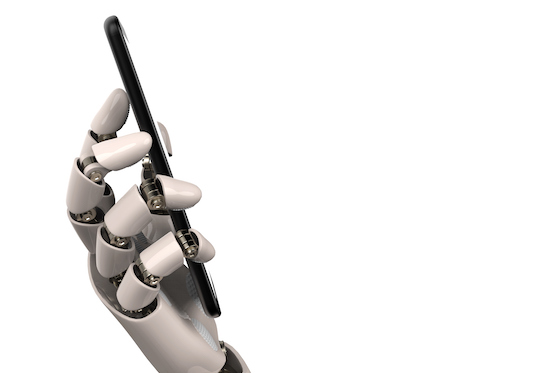An assortment of technologies — some already in place, some only now being imagined — will play an important role in the hospitality industry’s response to the novel coronavirus pandemic.
Promising to help keep guests and staff safe, these technologies are of paramount importance as the industry copes with the economic fallout of the pandemic.
Mobile apps
A number of brands are leveraging their existing mobile apps as a means of reducing person-to-person interactions inside properties.
Take Hilton, with its Connected Room service, which enables guests to personalize and control every aspect of their stay from a smartphone. Currently in beta testing, Connected Room is in about 15,000 rooms in 109 U.S. properties.
“Guests who stay at Connected Room-enabled properties use the Hilton Honors app on their personal mobile device to manage most things they would traditionally do manually in a room, from controlling the temperature and turning lights on and off to controlling the TV,” says Mike Gathright, senior vice president of customer channels at Hilton.

Contributed by Ellis Booker
Connected Room is part of the company’s loyalty program, Hilton Honors, and the mobile app allows guests to choose their rooms and check in digitally. It also has Hilton’s room-entry tool, called Digital Key, which launched in 2015 and allows guests to bypass the front desk and head straight to their rooms – an attractive option when minimizing contact. The company says more than 4,800 properties in 48 countries have the technology.
MGM Resorts is likewise retooling for contactless entry and services via its mobile app. MGM also is rethinking F&B services, including the use of digital menus, viewable on the guest’s smartphone via QR code, and virtual queues/text notifications of an open table for guests when immediate seating is unavailable.
And more than 3,200 Marriott International hotels are offering guest check-in and room access through their smartphones. Those guests can also use their phones to order room service or make other hotel requests.
“There’s no question there’s been a significant increase in interest [in touchless technologies],” says Michael Doyle, executive vice president and managing director at CHMWarnick, a provider of hospitality asset management and strategic advisory services. But to be most effective, Doyle says these solutions will need to be delivered in a “seamless” way, giving guests a level of control and comfort.
Mark Haley, a partner at Prism Hospitality Consulting, said end-to-end check-in, from reservation to arrival, hasn’t been widely adopted. “I’ve heard it’s in the low single digits,” he says. Like Doyle, he agrees that the seamlessness of this experience is of utmost importance.
“Some brands are feeling left behind,” Haley says, adding that the process is difficult to operationalize. For instance, separating guest rooms in space and time, and following safety guidelines from the Centers for Disease Control and government entities, will have to be coded into property management systems. While Haley has heard of PMS vendors talking about this, he isn’t aware of any implementations.
Every touchpoint
Stepping back, Haley says the first goal should be to understand every guest touchpoint and in-person interaction, up to and including pushing a button in an elevator. “Do you want to clean the elevator call button or replace it with a proximity switch or voice control?” he asks. Whatever new tech is deployed, it will be important to explain it to guests, he says.
Other opportunities are around sanitation technologies. For example, a cleaning robot that uses UVC light to disinfect rooms. Typically associated with hospital room settings, these robots have been demoed recently for many hoteliers, according to Haley. (There seems to be a race for affordable UVC systems: In recent weeks Amazon and others have announced work in this area.) Another idea: a cigar box-size UVC device in every room, into which a guest can place the TV remote, their keys, or a phone for disinfecting. But Haley notes that the software-equipped, medical-grade versions of these systems aren’t cheap, costing around US$400 each.
Meanwhile, brands will need to be flexible in how they offer these new, safe environments. Some patrons will want zero touchpoints, while others will want more personal pampering, Doyle said, and both sorts will have to be satisfied. He added that Covid-19 will “definitely accelerate technology investments,” such as providing sanitization, touchless access or notifications. Like other industry observers, he said personal devices (smartphone, smartwatches) will be the platform of choice for these services.
Protection and privacy
As governments and health experts stress the importance of contact-tracing in the battle against the coronavirus, will hotels be called upon to provide customer data to authorities? It’s imaginable that this could include, in addition to check-in and check-out, a log of a guest’s movement through the property and even, perhaps, their interaction with other guests and staff.
Both Doyle and Haley noted that, in Western democracies at least, a combination of individual rights and privacy laws will likely preclude hotels from divulging this kind of detail to authorities.
“If I’m a hotel GM, I’ll say, ‘Call back with a subpoena,’” Haley says.
